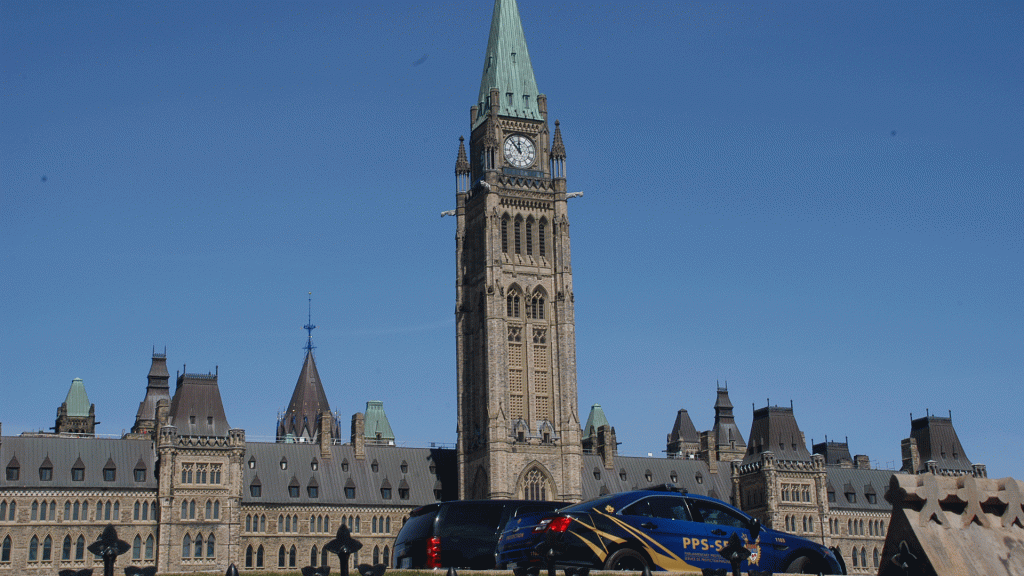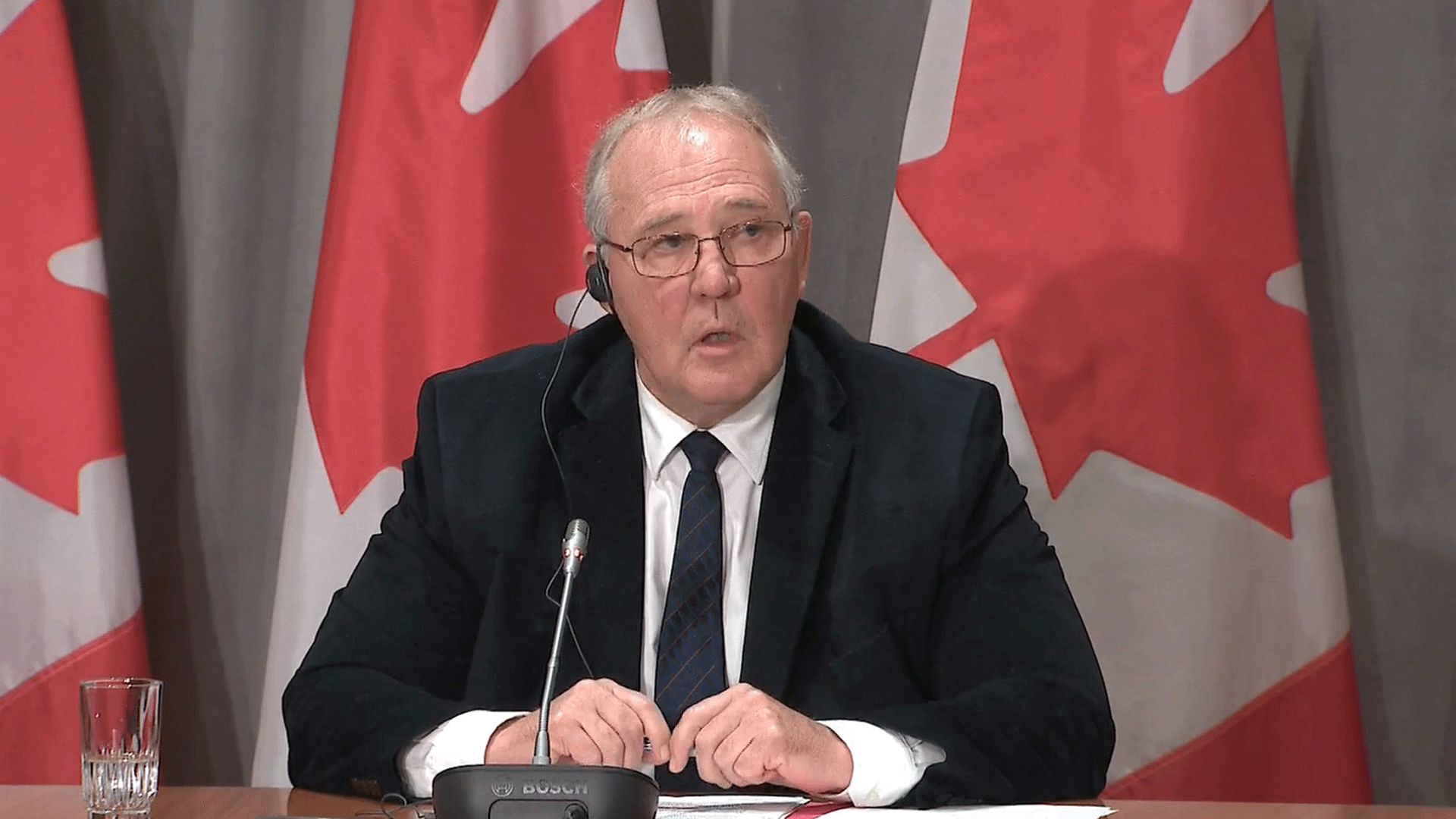
Public Safety Minister Bill Blair says his department will soon publish findings from four different reports on policing in Indigenous communities, which the government spent $1.25 million on after the National Inquiry on Missing and Murdered Indigenous Women and Girls delivered its 2017 interim report.
The reports have “made recommendations and identified tools, resources and promising practices that may be helpful in fostering a more trusting relationship and building confidence in police service,” he told the Commons public safety committee where opposition MPs grilled him on systemic racism on Tuesday evening.
APTN News spoke with people who helped produce three of these reports who all say there’s a desperate need for improved communication and more resources for Indigenous police forces or community liaisons.
One researcher says that governments already have plenty of recommendations to read and that when reports have no teeth, nothing happens.
“There are so many inquiry recommendations out there and have been for decades,” said Prof. Jane McMillan, “that have excellent instruction in them around what to change in terms of policing relationships, and if there’s nobody advocating for or no mechanism put into those commissions of inquiry to implement recommendations, nothing gets done.”
McMillan’s team at St. Francis Xavier University in Antigonish, N.S., produced a report called Examining Police Policies and Practices in Mi’kma’ki: Pathways to Positive Policing Relations.
It’s finished but this review, along with the other reports, are not available publicly until the government releases them.
It makes no recommendations but instead identifies ways to reconcile relationships that are marred with colonialism, injustice and mistrust.
She points to the Donald Marshall Jr. report, a 1989 royal commission that examined Marshall’s 1971 wrongful conviction after he spent 11 years in prison for a murder he didn’t commit.
It concluded the justice system failed Marshall “at virtually every turn,” and made 82 recommendations on how to reform policing and justice in Nova Scotia.
McMillan says this event profoundly affected the way people relate to police in Mi’kma’ki.
Recent events thrust policing in Mi’kma’ki under the microscope again after police in New Brunswick shot and killed two First Nations people in distress, Chantel Moore and Rodney Levi.
McMillan says people don’t trust the police and don’t call them because of it. But trust increased, her team found, when police officers were Mi’kmaw or Indigenous from another community.
“People had more confidence in engaging with, particularly in crises, with officers who were from their communities or were from the nation or were Indigenous from another community,” she said. “There’s a very strong perception that people are being judged and they don’t like to be judged by people who do not understand their lived experiences.”

Blair told the Commons committee that he plans to make First Nations policing an essential service – part of the mandate given him by Prime Minister Justin Trudeau when Canadians re-elected the Liberal government in 2019.
After the Marshall report, Cape Breton communities established the Unama’ki Tribal Police, which fizzled out after five years due to lack of money.
Despite being “totally under-resourced,” McMillan says people called police 200 to 400 per cent more often when First Nations officers patrolled the community.
And the desire for First Nations policing remains, she says, but adequate resources have to come with it.
Pressure is mounting on the government to act on systemic racism after other events garnered shock and outrage.
A violent arrest video surfaced showing an RCMP officer hitting a Nunavut man with his car door.
Another one revealed Alberta RCMP tackling, punching and choking Athabasca Chipewyan Chief Allan Adam.
Protests in solidarity with the Black Lives Matter movement also erupted across the country after the killing of an unarmed Black man named George Floyd by Minneapolis police.
Similar calls for reform come from Pauktuutit Inuit Women of Canada.
Their report was released in January 2020 and is called Addressing Gendered Violence against Inuit Women: A review of police policies and practices in Inuit Nunangat.
It called for a radical decolonizing shift in policing in the north and presented 15 recommendations to get started.
“The big thing that it starts with is the communication,” said Pauktuutit Vice President Gerri Sharpe. “There needs to be open communication that is a two-way dialogue and not just a conversation where they say, ‘This is how it’s going to be’,”
She says RCMP officers are shuffled in and out of communities within two years, rarely establishing relationships in places that still contain many unilingual Inuktitut speakers.
“This results in being distant. That needs to change. They need to be aware of the community and be part of the community to effectively protect it.”
She says police would benefit from community liaisons who speak Inuktitut and could act as facilitators who educate police about local culture and educate the public about their legal rights.
When asked if she’s worried about these recommendations merely adding to the shelves, Sharpe says she’s hopeful that conversations with Liberal ministers will spur action.
“I believe that the rest of Pauktuutit is also hopeful. And at this point, we hope that the change and the recommendations will help Inuit in Inuit Nunangat,” she said.
Read more:
Indigenous leaders push for action on ‘stacks of recommendations’ to fix policing
A third review comes out of Saskatchewan, a province that has the Neil Stonechild report and the history of starlight tours on its shelf.
But Chad Nilson, a Prince Albert based researcher with Community Safety and Knowledge Alliance, say the report he worked on took a different route and looked at ways communities built positive relationships with police in the past.
Watch Jamie Pashagumskum’s story on Tuesday’s committee meeting
Their report is called Joining the Circle: Identifying key ingredients for effective police collaboration within Indigenous communities.
He hopes the government will publish it in the coming weeks.
“Ultimately what this study is to do is to build a knowledge foundation for how Public Safety Canada can support police agencies of different types, sizes and jurisdictions to build capacity to better collaborate with Indigenous communities,” he told APTN.
He says they visited First Nations to interview 69 community members, including elders, chiefs, addiction workers, day-care workers and others.
“Despite colonial history and a blemished past within policing in Canada, a lot of respondents pointed to the good merits and the necessity that we need police to be collaborative,” he said.
“Mutual respect is a key ingredient. Ongoing communication is really important, and making sure that the process of collaboration is efficient. There can’t be a lot of barriers or red tape or challenges. When you’re trying to build relationships, we’re talking people to people here.”
APTN has asked Blair for an interview on multiple occasions but they have not been granted.









